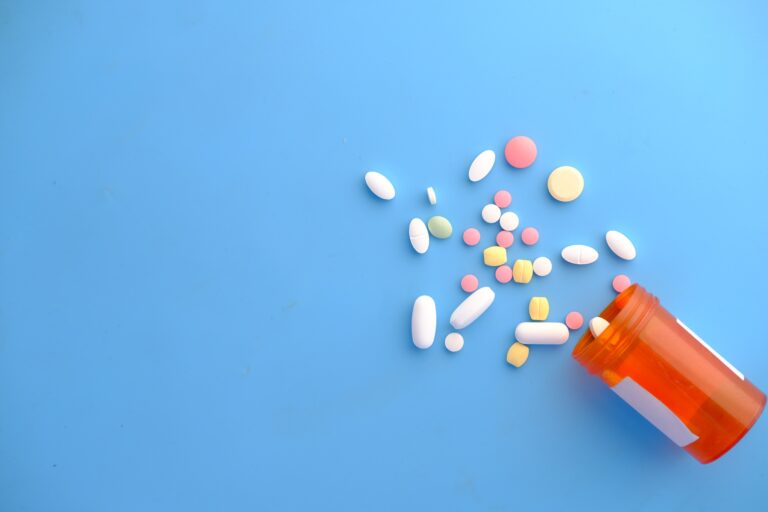Battling the beast of opioid addiction can be a challenging journey. You’re not alone, and there are specific treatments that can help. Methadone might be your answer. This guide will demystify how methadone works to combat opioid addiction. You’ll learn about its role, effectiveness, and potential risks. It’s not a magic bullet, but it’s a clinically proven path to recovery. So, take a breath, and let’s explore the ins and outs of methadone treatment.
Understanding Opioid Addiction
To understand how methadone treatment works, you’ve first got to grasp the nature of opioid addiction itself. Opioid addiction is a chronic, relapsing disease, characterized by compulsive drug seeking and use despite harmful consequences. It’s a medical condition that can affect anyone, regardless of age, race, or economic status.
In most cases, opiate addiction starts innocently with a prescription for pain relief. But over time, your body builds a tolerance to the drug, and you find yourself needing more of it to achieve the same effect. This cycle can easily spiral out of control, leading to a full-blown addiction.
Once you’re hooked, quitting isn’t as simple as just deciding to stop. Opiate withdrawal symptoms can be severe, making it extremely hard to quit without help. That’s where an opiate treatment center comes in. These centers specialize in opiate addiction help, providing medical and psychological support to help you overcome your addiction.
One common form of opioid treatment is methadone treatment. Methadone is a medication that works by changing how your brain and nervous system respond to pain. It lessens the painful symptoms of opiate withdrawal and blocks the euphoric effects of opiate drugs. But it’s not a cure-all. Methadone treatment is most effective when combined with counseling and other forms of opiate addiction treatment.
The Role of Methadone
While you might feel overwhelmed by your struggle with opioid addiction, methadone can play a crucial role in your recovery process. This medication, when administered correctly, can help you endure the challenging phase of opiate detox. Methadone primarily works by alleviating the withdrawal symptoms associated with coming off opioids.
As an opioid itself, methadone has a slower onset and lasts longer in your system compared to other opioids. It’s not about getting a ‘high’, but about stabilizing your body and brain that have been disrupted by chronic opioid use. When you’re on methadone, you’re less likely to experience the intense cravings that typically accompany detox. It’s like having a safety net that allows you to focus on rebuilding your life, rather than being consumed by the struggle to stay clean.
Let’s be clear: Methadone isn’t a cure for opioid addiction. It’s a tool – one of many in the toolbox of recovery. It’s part of a comprehensive treatment plan that also includes counseling, support groups, and other therapies. The goal isn’t just to get you off opioids, but to help you rebuild a healthy, fulfilling life.
Effectiveness of Methadone Treatment
Often, you’ll find that methadone treatment can be highly effective in managing opioid addiction. Numerous studies show that methadone treatment can significantly reduce the use of illicit opioids, decrease crime rates, improve health outcomes, and enhance social productivity. It’s not just about quitting the habit; it’s about helping you regain control over your life.
But you’re probably wondering how it works, right? Methadone, a long-acting synthetic opioid, works by reducing the craving for opioids and the withdrawal symptoms that often lead to relapse. It does this by stimulating the same opioid receptors in the brain that other opioids like heroin or prescription painkillers do, but in a slower, controlled manner. This helps to stabilize your brain chemistry, allowing you to focus on recovery rather than battling withdrawal.
There are caveats, though. Methadone treatment isn’t a quick fix. It’s typically part of a comprehensive treatment program that includes counseling and participation in social support programs. Your progress depends on your commitment to recovery. And while methadone can be effective, it’s not for everyone. Your doctor will need to assess your individual circumstances and health history to determine if it’s the right treatment for you.
Potential Risks and Side Effects
Despite the benefits, you should be aware of the potential risks and side effects associated with methadone treatment. While it’s a proven approach to combating opioid addiction, it’s not without its downsides. It’s crucial that you understand these before embarking on this treatment path.
One of the major risks is methadone’s potential for misuse. Because it’s an opioid itself, it can be addictive if not administered and monitored carefully. Overdose is a real concern, especially if you’ve been using other substances or medications alongside methadone.
Side effects vary from person to person, but common ones include constipation, weight gain, sweating, and difficulty sleeping. More severe symptoms may include slow breathing, hallucinations, confusion, chest pain, or rapid heartbeat. If you experience any of these, it’s critical to seek medical attention immediately.
Methadone can also interact with other medications, leading to adverse reactions. It’s important to discuss all your medications with your healthcare provider before starting methadone treatment. This includes prescription drugs, over-the-counter medications, and even herbal supplements.
Lastly, long-term use of methadone can lead to physical dependence – you may experience withdrawal symptoms when you stop using it. This doesn’t signify addiction, but it underscores the need for careful monitoring and a gradual reduction in dosage when it’s time to stop treatment.
Frequently Asked Questions
How Long Does the Methadone Treatment Typically Last for Opioid Addiction?
You’re asking about the typical duration of methadone treatment for opioid addiction. It’s not a one-size-fits-all scenario. The length of time you’d be on methadone really depends on your personal circumstances and recovery progress. Some people might need it for months, while others could require years. It’s crucial to remember that this is a long-term treatment and rushing the process isn’t advised. Your healthcare provider will guide you on the correct duration for optimal recovery.
Are There Any Diet or Lifestyle Changes Required During Methadone Treatment?
When you’re undergoing methadone treatment, it’s important to maintain a healthy lifestyle. This means eating a balanced diet, exercising regularly, and getting plenty of sleep. You’ll also need to avoid alcohol and other drugs, as they can interact with methadone and lead to complications. It’s crucial to follow these guidelines to ensure the treatment is as effective as possible and to support your overall recovery.
Can Methadone Treatment Be Combined With Other Forms of Addiction Therapy?
Absolutely, you can combine methadone treatment with other forms of addiction therapy. It’s highly recommended, in fact. Methadone helps curb cravings and withdrawal symptoms, but it doesn’t address underlying issues that led to opioid use. That’s where therapies like cognitive-behavioral therapy or contingency management come in. They equip you with coping strategies and positive reinforcement to prevent relapse.
How Soon Can One Expect to See Results From Methadone Treatment?
You’re likely curious about when you’ll see results from methadone treatment. It’s not a one-size-fits-all answer, as it depends on your unique circumstances. However, typically, you’ll start to feel relief from withdrawal symptoms within 30 minutes to an hour after taking your first dose.
What Are the Costs Associated With Methadone Treatment for Opioid Addiction?
The costs of methadone treatment vary greatly. They’re dependent on factors like the clinic you choose, the length of your treatment, and whether insurance covers it. Typically, you’re looking at an initial cost for intake procedures, then a daily fee that includes the medication and counseling services. It’s important to remember, investing in your health and recovery is invaluable. Always research and discuss options with healthcare providers to find what’s best for you.
Final Thoughts
So, you’ve learnt how opioid addiction works and the role methadone plays in treatment. You’ve seen how effective it can be, yet you’re aware of its potential risks and side effects. It’s a complex issue, isn’t it? But remember, overcoming addiction is a journey, not a sprint. Methadone could be a useful tool in your recovery toolbox. Just make sure you’re well-informed and have a supportive team around you.






